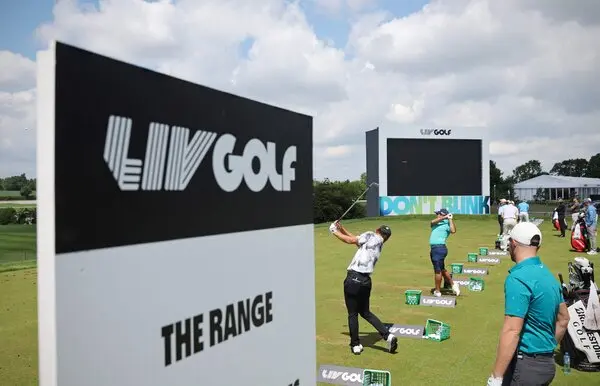Inside LIV Golf, Newcastle United, and the Upcoming Saudi Spending Boom
As Saudi Arabia continues to assert its growing influence on the global sports landscape, two key sectors—LIV Golf and Newcastle United—are at the forefront of this transformation. Both have become symbols of the kingdom’s ambitious Vision 2030 initiative, aimed at diversifying the economy and enhancing its cultural profile. But what does this mean for the future of these sports, and what impact will the planned financial boom have on the global sports ecosystem?
LIV Golf: Disrupting Tradition in the World of Golf
Launched in 2022, LIV Golf is a breakaway professional golf league funded by Saudi Arabia’s Public Investment Fund (PIF), with an eye-catching goal: to challenge the long-established PGA Tour. Led by Greg Norman, the league has attracted top golfers with huge financial incentives, offering signing bonuses that have eclipsed anything seen in the sport’s history. Players like Phil Mickelson, Dustin Johnson, and Brooks Koepka have made the switch, signing contracts worth hundreds of millions of dollars.
The formation of LIV Golf was a bold move by Saudi Arabia, part of a wider strategy to diversify the nation’s economy beyond oil. But it has not come without controversy. Critics accuse the league of “sportswashing”—using sports investments to distract from the kingdom’s human rights record. In response, LIV Golf has positioned itself as a disruptor, promoting player freedom and a redefined format that offers players more flexibility and less commitment compared to traditional tours.
The league’s disruptive approach has ignited fierce debates about the future of professional golf. The PGA Tour has retaliated by suspending players who have defected to LIV, while other organizations are carefully monitoring the potential shifts in the sport’s balance of power. But the reality is, with the financial muscle of Saudi Arabia backing LIV, it’s set to continue shaping golf’s future, offering players unparalleled opportunities, while increasing competition for established tours like the PGA.
**Newcastle United: A New Era for the Premier League**
When Saudi Arabia’s PIF acquired Newcastle United in 2021 for around £300 million, it marked the beginning of a new era for the Premier League club. With Saudi Arabia’s Crown Prince Mohammed bin Salman (MBS) controlling the investment, Newcastle quickly became one of the richest football clubs in the world. This financial backing has already started to reshape the team, with ambitious plans for the club’s future that include bringing in high-profile players, improving the stadium, and enhancing its commercial presence.
Since the takeover, Newcastle has seen significant improvements on the pitch. Under the guidance of manager Eddie Howe, the club has shown a resurgence in the Premier League, pushing for European competition spots after years of mediocrity. The influx of financial resources has allowed the club to recruit players who might have otherwise been out of reach, signaling that Newcastle could soon be a major force in English football.
However, the rise of Newcastle also sparks similar criticisms of sportswashing. While the club’s success on the pitch is undeniable, critics argue that the takeover serves as a vehicle for Saudi Arabia to enhance its international image amid global concerns over its human rights practices. Like LIV Golf, the Newcastle investment is part of a broader strategy to project power and influence through sports, in line with Saudi Arabia’s goal of attracting global attention and investments as part of its Vision 2030.
**The Saudi Spending Boom: A Game Changer for Global Sports**
Saudi Arabia’s sports investments are not just limited to golf and football. The country has increasingly become a key player in a wide range of sports, including boxing, Formula 1, and even esports. This expansion is fueled by the desire to transform the nation’s image while preparing for the future beyond oil revenues. The government is investing heavily in entertainment and sports as part of its Vision 2030 plan, and this includes establishing partnerships with some of the world’s most lucrative and popular sports leagues.
The result is a spending boom that will likely reshape the global sports landscape. Saudi-backed organizations have poured millions into high-profile events, sponsorships, and media rights deals. For example, the kingdom’s Public Investment Fund is backing a range of high-profile events, from the Saudi Arabian Grand Prix in Formula 1 to boxing bouts featuring heavyweight stars like Anthony Joshua. These investments are poised to push the kingdom’s presence onto the world stage, creating new opportunities and rivalries in the sporting world.
In the coming years, we can expect even more significant financial outlays, potentially making Saudi Arabia a key player in every major sport. As more global stars are lured by lucrative offers, the competitive dynamics of sports like football, golf, and motorsports could dramatically change.
**Conclusion: A Shift in the Sports World**
The rise of LIV Golf and Newcastle United, fueled by Saudi Arabia’s massive financial resources, is part of a larger trend that is reshaping the global sports industry. As the kingdom continues its strategy to diversify its economy, the spending boom in sports is set to continue for years to come. For fans, players, and critics alike, the coming years will provide a fascinating look at how sports and geopolitics intersect—and whether this new wave of investment truly changes the global sporting landscape or raises deeper ethical questions about the role of money in sport.









